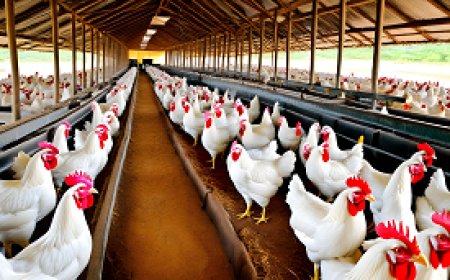Effective tips for preventing diseases and maintaining the health of dogs
To ensure the health of dogs and prevent diseases, pet owners should follow some effective guidelines. First and foremost, providing a balanced diet that meets the dog's essential nutritional needs is crucial. Additionally, ensuring an adequate supply of clean drinking water is important. Regular exercise is also recommended to maintain the dog's fitness and stimulate its physical activity. Routine healthcare, such as vaccinations and medical check-ups, plays a vital role in preventing infectious diseases. The importance of good hygiene and care for grooming and oral hygiene cannot be overstated, as they contribute to preventing various health issues. Finally, it is essential to provide a clean and safe environment for the dog, including maintaining cleanliness in its eating and drinking areas, to ensure a healthy and happy life for the pet.

In today's world, dogs have become an integral part of many families. Proper care for dogs is crucial to ensure their health and happiness. Understanding effective ways to prevent diseases and maintain the health of dogs is a fundamental responsibility for pet owners. In this context, this introduction will explore some effective and necessary tips for preserving the health of dogs and preventing potential diseases. From proper nutrition to regular exercise and providing routine healthcare, we will take a look at important factors that contribute to enhancing the well-being and health of these wonderful beings that play an essential role in our daily lives.
The Importance of Proper Nutrition for Dog Health
Proper nutrition is fundamental for maintaining the health and well-being of dogs. Just like humans, dogs require a balanced and nutritious diet to support their growth, energy levels, and overall health. Here's an in-depth look at the importance of proper nutrition for dog health:
1. Nutrient Requirements:
- Proteins: Essential for muscle development, repair, and overall body function.
- Carbohydrates: Provide a source of energy, supporting daily activities and exercise.
- Fats: Important for healthy skin, a shiny coat, and overall energy.
- Vitamins and Minerals: Play crucial roles in various physiological processes, including bone health, immune function, and vision.
2. Balanced Diet:
- A balanced diet ensures that dogs receive the right proportions of proteins, carbohydrates, fats, vitamins, and minerals.
- Different life stages (puppy, adult, senior) and sizes (small, medium, large) have varying nutritional needs, and a balanced diet should cater to these requirements.
3. Weight Management:
- Proper nutrition helps in maintaining an optimal body weight for dogs.
- Overweight or underweight dogs are prone to health issues, including joint problems, diabetes, and cardiovascular diseases.
4. Muscle and Bone Health:
- Adequate protein intake is crucial for muscle development and maintenance.
- Essential minerals like calcium and phosphorus support bone health, especially in growing puppies and large breeds.
5. Skin and Coat Health:
- Omega-3 and omega-6 fatty acids contribute to healthy skin and a lustrous coat.
- Poor nutrition can lead to skin issues, allergies, and a dull coat.
6. Digestive Health:
- High-quality, easily digestible ingredients support a healthy digestive system.
- Fiber is essential for proper bowel movements and can prevent constipation.
7. Immune System Support:
- Proper nutrition boosts the immune system, helping dogs fight off infections and illnesses.
- Antioxidants, found in certain vitamins, contribute to immune system health.
8. Dental Health:
- Chewing on appropriate foods and treats helps in maintaining oral health.
- Some diets include dental benefits, reducing the risk of dental issues.
9. Allergies and Sensitivities:
- Properly formulated diets can address food allergies and sensitivities.
- Limited-ingredient or hypoallergenic diets may be recommended for dogs with specific dietary intolerances.
10. Behavior and Cognitive Function:
- Nutrient-rich diets support cognitive function and overall mental well-being.
- Certain nutrients, like antioxidants, contribute to brain health.
11. Life Stage Nutrition:
- Puppies, adults, and seniors have different nutritional needs.
- Puppy food supports growth, while senior diets may focus on joint health and weight management.
12. Disease Prevention:
- Proper nutrition can contribute to preventing certain health conditions.
- Breed-specific diets may address genetic predispositions to certain diseases.
Providing dogs with a well-balanced and nutritious diet is a cornerstone of responsible pet ownership. Consultation with a veterinarian is essential to determine the specific dietary needs of individual dogs based on factors like age, size, health status, and breed. Ultimately, proper nutrition plays a pivotal role in ensuring a dog's longevity, vitality, and overall quality of life.
Benefits of Daily Exercise for Dogs
Regular exercise is essential for the physical and mental well-being of dogs. Just like humans, dogs benefit from daily physical activity that helps maintain a healthy weight, prevents behavioral issues, and promotes overall fitness. Here are the key benefits of daily exercise for dogs:
1. Weight Management:
Regular exercise is crucial for preventing obesity in dogs. Obesity can lead to various health issues, such as diabetes, joint problems, and a reduced lifespan. Engaging in physical activity helps dogs burn calories, maintain a healthy weight, and keep their metabolism active.
2. Muscle Development and Maintenance:
Exercise plays a vital role in building and maintaining muscle mass. This is particularly important for working dogs, athletes, and breeds with a predisposition to musculoskeletal issues. Regular activity helps strengthen muscles, supporting overall mobility and joint health.
3. Joint Health:
Keeping dogs active helps lubricate their joints, reducing the risk of arthritis and other joint-related problems. Controlled, low-impact exercises are especially beneficial for dogs prone to joint issues, such as large breeds or those with genetic predispositions.
4. Cardiovascular Health:
Exercise contributes to cardiovascular fitness in dogs. Activities that increase heart rate, such as running or swimming, enhance the circulatory system, promoting a healthy heart and lungs. Good cardiovascular health is essential for overall stamina and endurance.
5. Mental Stimulation:
Daily exercise is not only about physical health but also mental well-being. Mental stimulation is crucial for preventing boredom and behavioral problems in dogs. Activities like puzzle toys, interactive games, and outdoor exploration provide mental challenges that keep dogs engaged and happy.
6. Behavioral Benefits:
Dogs that receive sufficient exercise are less likely to engage in destructive behaviors like chewing furniture or excessive barking. Regular physical activity helps release pent-up energy, reducing anxiety and stress. It also contributes to a more relaxed and well-behaved dog.
7. Socialization Opportunities:
Exercise often involves interaction with other dogs and people, providing valuable socialization opportunities. Well-socialized dogs are generally more confident, adaptable, and less likely to exhibit aggressive behavior. Off-leash play in designated areas can be particularly beneficial for promoting positive social interactions.
8. Prevention of Health Issues:
Exercise plays a role in preventing various health issues, including diabetes, digestive problems, and certain respiratory conditions. An active lifestyle supports a robust immune system, helping dogs resist infections and illnesses.
9. Improved Digestive Health:
Regular physical activity stimulates the digestive system, promoting healthy digestion and preventing issues like constipation. Dogs that are sedentary may be more prone to gastrointestinal problems.
10. Enhanced Bonding with Owners:
Engaging in activities together, such as walking, hiking, or playing fetch, strengthens the bond between dogs and their owners. This shared time fosters trust and communication, contributing to a positive relationship.
11. Energy Outlet:
Many dogs have a surplus of energy, especially high-energy breeds. Regular exercise provides an outlet for this energy, reducing the likelihood of hyperactivity, restlessness, or destructive behavior.
12. Extended Lifespan:
Dogs that maintain a healthy weight, strong muscles, and overall fitness through regular exercise often enjoy a longer and more active life. Exercise contributes to a higher quality of life by minimizing the impact of aging and age-related health issues.
daily exercise is a fundamental aspect of responsible dog ownership. It goes beyond physical health, addressing behavioral, mental, and social needs. Dog owners should tailor the type and intensity of exercise to their dog's breed, age, and health status, always ensuring that activities are safe and enjoyable for their furry companions. Regular veterinary check-ups can help determine the appropriate level of exercise based on individual health considerations.
How to Provide a Clean and Safe Environment for Dog Health
Ensuring a clean and safe environment is essential for maintaining the health and well-being of your dog. A clean living space helps prevent the spread of disease, reduces the risk of injuries, and promotes a comfortable and stress-free environment. Here are detailed guidelines on how to provide a clean and safe environment for your dog:
1. Regular Cleaning:
- Living Areas: Clean your dog's living areas regularly. This includes vacuuming carpets, washing bedding, and wiping down surfaces. Dogs often shed hair and dander, and keeping the living space clean helps manage allergies and keeps the environment hygienic.
- Crate or Kennel: If your dog uses a crate or kennel, clean it regularly to prevent the buildup of bacteria and odors. Use pet-safe cleaners to ensure your dog isn't exposed to harmful chemicals.
2. Proper Waste Disposal:
- Poop Scooping: Scoop your dog's poop regularly, especially in the yard or during walks. Leaving feces can attract pests and contribute to the spread of parasites and diseases.
- Litter Box Maintenance: If you have an indoor cat, ensure the litter box is scooped daily and changed regularly to prevent odor and keep your cat's paws clean.
3. Safe Outdoor Areas:
- Fenced Yard: If you have a yard, ensure it is securely fenced to prevent your dog from wandering off or encountering potential hazards.
- Remove Toxic Plants: Be aware of toxic plants in your yard and remove them to prevent accidental ingestion.
4. Pet-Safe Cleaning Products:
- Choose Pet-Friendly Cleaners: When cleaning your home, choose cleaning products that are safe for pets. Many household cleaners contain chemicals that can be harmful if ingested or come into contact with a dog's skin.
5. Regular Grooming:
- Bathing: Regular baths help keep your dog's coat clean and reduce the risk of skin infections. Use a gentle, pet-friendly shampoo to avoid irritation.
- Brushing: Brush your dog's coat regularly to remove loose hair and prevent matting. This is especially important for dogs with long or dense coats.
- Nail Trimming: Keep your dog's nails trimmed to a safe length to prevent discomfort and injuries.
6. Proper Nutrition:
- Clean Bowls: Wash your dog's food and water bowls regularly to prevent the growth of bacteria. Stainless steel or ceramic bowls are preferable to plastic, which can harbor bacteria and cause skin irritations.
- High-Quality Dog Food: Feed your dog a balanced and nutritious diet to support overall health, including a healthy coat, strong immune system, and proper weight management.
7. Parasite Control:
- Regular Vet Check-ups: Schedule regular veterinary check-ups to monitor your dog's health and discuss parasite prevention.
- Flea and Tick Prevention: Use veterinarian-recommended flea and tick prevention methods to protect your dog from these common parasites.
8. Safety Measures:
- Secure Hazardous Items: Keep hazardous items, such as medications, cleaning supplies, and small objects that can be swallowed, out of your dog's reach.
- Pet-Proofing: Pet-proof your home by securing electrical cords, removing toxic plants, and using gates to restrict access to certain areas.
9. Regular Exercise:
- Prevent Obesity: Regular exercise helps prevent obesity, which is linked to various health issues. Take your dog for daily walks, play fetch, or engage in other activities based on your dog's energy level and abilities.
10. Regular Veterinary Care:
- Vaccinations: Keep your dog's vaccinations up-to-date to prevent the spread of contagious diseases.
- Dental Care: Dental hygiene is crucial for overall health. Brush your dog's teeth regularly, provide dental treats or toys, and schedule professional dental cleanings as recommended by your vet.
11. Monitor Behavior Changes:
- Watch for Signs of Illness: Be vigilant for any changes in your dog's behavior, appetite, or energy levels. Early detection of health issues allows for prompt veterinary intervention.
By following these guidelines, you can create a clean and safe environment that contributes to your dog's overall health and happiness. Regular veterinary care and attention to your dog's specific needs will help ensure a long and fulfilling life for your canine companion.
The Role of Regular Health Check-ups in Disease Prevention
Regular health check-ups for dogs are crucial in disease prevention and overall canine well-being. These check-ups involve thorough examinations conducted by veterinarians to identify potential health issues, monitor existing conditions, and provide preventive care tailored to the specific needs of dogs. Here's a detailed look at the importance and role of regular health check-ups in disease prevention for dogs:
1. Early Detection of Health Issues:
-
Comprehensive Physical Examinations: Regular check-ups involve comprehensive physical examinations to detect any signs of illness or abnormalities in dogs. Early detection allows for prompt intervention and treatment, increasing the likelihood of successful outcomes.
-
Diagnostic Tests and Screenings: Veterinarians may recommend diagnostic tests and screenings, such as blood work and imaging, to identify underlying health issues even before clinical symptoms manifest.
2. Preventive Care:
-
Vaccinations: Regular health check-ups provide an opportunity to ensure that a dog's vaccinations are up-to-date. Vaccines are essential for preventing contagious diseases and protecting dogs from serious health threats.
-
Parasite Prevention: Veterinarians can assess the risk of parasites and recommend preventive measures such as regular deworming and flea and tick control to keep dogs healthy.
3. Dental Care:
-
Oral Examinations: Dental health is a critical aspect of a dog's overall well-being. Regular check-ups include oral examinations to detect dental issues, such as periodontal disease, and recommendations for dental care, including professional cleanings.
-
Home Dental Care Guidance: Veterinarians often provide guidance on home dental care practices, such as brushing a dog's teeth and providing dental treats or toys.
4. Nutritional Assessment:
-
Dietary Evaluation: Veterinarians can assess a dog's diet to ensure it meets their nutritional needs. Proper nutrition is vital for maintaining a dog's overall health, supporting their immune system, and preventing obesity.
-
Weight Management: Regular check-ups include monitoring a dog's weight, with veterinarians providing advice on weight management and dietary adjustments if necessary.
5. Behavioral Assessment:
-
Monitoring Behavioral Changes: Regular health check-ups involve discussions about a dog's behavior and any changes that may indicate underlying health issues or stress. Behavioral assessments can aid in early detection of certain conditions.
-
Addressing Anxiety and Stress: Veterinarians can offer guidance on managing anxiety and stress in dogs, providing recommendations for environmental enrichment and behavioral interventions.
6. Joint and Mobility Check:
-
Evaluation of Joint Health: For older dogs or those prone to joint issues, regular check-ups include an assessment of joint health. This may involve monitoring for signs of arthritis or recommending joint supplements.
-
Exercise Recommendations: Veterinarians can provide tailored recommendations for exercise and physical activity, taking into consideration a dog's age, breed, and overall health.
7. Reproductive Health (if applicable):
-
Reproductive Examinations: For intact dogs, regular check-ups may include reproductive health assessments. Veterinarians can discuss options for spaying or neutering, as well as address any reproductive health concerns.
-
Prenatal Care: If a dog is pregnant, veterinarians can provide prenatal care, monitor the pregnancy, and offer guidance on proper nutrition and care for the expectant mother.
8. Senior Dog Care:
-
Geriatric Health Assessments: As dogs age, their health needs change. Regular check-ups for senior dogs involve specific geriatric health assessments, including monitoring for common age-related conditions such as arthritis, cognitive decline, and dental issues.
-
Tailored Preventive Measures: Veterinarians can recommend specific preventive measures for senior dogs, such as joint supplements, special diets, and more frequent health check-ups.
9. Educating Pet Owners:
-
Pet Owner Guidance: Regular health check-ups provide an opportunity for veterinarians to educate pet owners on proper care practices, including nutrition, grooming, and exercise.
-
Emergency Preparedness: Veterinarians can discuss emergency preparedness with pet owners, providing information on recognizing signs of distress and knowing when to seek urgent veterinary care.
10. Building a Health History:
-
Maintaining Medical Records: Regular health check-ups contribute to building a comprehensive health history for each dog. This history is valuable for tracking health trends, diagnosing issues, and ensuring continuity of care.
-
Facilitating Timely Interventions: With a complete health history, veterinarians can make more informed decisions and intervene promptly when health issues arise.
11. Ensuring a Happy and Healthy Life:
-
Comprehensive Care: Regular health check-ups contribute to comprehensive care, addressing all aspects of a dog's health and well-being.
-
Promoting Longevity: By detecting and addressing health issues early, regular check-ups contribute to the overall longevity and quality of life for dogs.
regular health check-ups are vital for preventing diseases and ensuring the well-being of dogs throughout their lives. Pet owners should establish a routine of regular veterinary visits, follow preventive care recommendations, and communicate openly with veterinarians to address any concerns about their dog's health.
Best Practices for Care and Cleaning to Maintain Dog Hygiene
Maintaining proper hygiene for your dog is essential for their health and well-being. Regular care and cleaning routines contribute to a clean, comfortable, and healthy environment for your furry friend. Here are some best practices for dog care and cleaning to ensure optimal hygiene:
1. Grooming:
-
Brushing: Regular brushing helps remove loose fur, prevents matting, and distributes natural oils for healthy skin and coat. The frequency of brushing depends on the dog's breed and coat type.
-
Bathing: Bathe your dog as needed, typically every 4-8 weeks, or when they get dirty. Use a dog-specific shampoo to avoid skin irritation, and make sure to rinse thoroughly.
-
Nail Trimming: Keep your dog's nails trimmed to prevent discomfort and potential injuries. If you're unsure, consult your veterinarian or a professional groomer.
-
Ear Cleaning: Check and clean your dog's ears regularly to prevent infections. Use a veterinarian-approved ear cleaning solution and avoid inserting anything into the ear canal.
2. Dental Care:
-
Toothbrushing: Brush your dog's teeth regularly using a dog-friendly toothbrush and toothpaste. Dental hygiene is crucial for preventing dental issues and maintaining overall health.
-
Dental Chews and Toys: Provide dental chews and toys to help reduce plaque and tartar buildup. Look for products approved by veterinarians.
3. Regular Vet Check-ups:
- Schedule regular veterinary check-ups to monitor your dog's overall health. Vaccinations, parasite control, and preventive care are essential components of these visits.
4. Proper Nutrition:
-
Feed your dog a balanced and nutritious diet. Consult with your veterinarian to determine the right type and amount of food based on your dog's breed, age, and health condition.
-
Provide fresh, clean water at all times to keep your dog well-hydrated.
5. Parasite Control:
-
Use veterinarian-recommended products for flea and tick prevention. Regularly check your dog for ticks, especially after outdoor activities.
-
Administer deworming medications as advised by your veterinarian to prevent intestinal parasites.
6. Clean Living Spaces:
-
Regularly clean your dog's living spaces, including their bed, crate, and any other areas they frequent. Use pet-safe cleaning products to eliminate odors and bacteria.
-
Vacuum and mop floors to remove pet hair and dander, reducing allergens and maintaining a clean environment.
7. Hygiene During Walks:
-
Clean up after your dog during walks. Carry waste bags to properly dispose of feces and maintain cleanliness in public spaces.
-
Keep your dog on a leash in areas where it's required for safety and hygiene reasons.
8. Training and Behavioral Care:
-
Train your dog to follow basic commands, which can contribute to better hygiene practices.
-
Address behavioral issues promptly to prevent habits that may compromise hygiene, such as excessive licking or rolling in unpleasant substances.
9. Safety and First Aid:
-
Be aware of potential hazards in your home and outdoor spaces. Secure toxic substances, keep small objects out of reach, and create a safe environment.
-
Have a pet first aid kit on hand and know basic first aid procedures. Consult your veterinarian for guidance on creating a suitable kit.
10. Monitoring Health Signs:
-
Keep an eye out for signs of health issues such as changes in appetite, behavior, or bathroom habits. Early detection allows for prompt veterinary intervention.
-
Contact your veterinarian if you notice anything unusual or have concerns about your dog's health.
11. Socialization and Mental Stimulation:
-
Provide opportunities for socialization and mental stimulation to prevent boredom-related behaviors that may impact hygiene.
-
Interactive toys, walks, and playtime contribute to a happy and well-adjusted dog.
By incorporating these best practices into your dog care routine, you'll not only maintain their hygiene but also contribute to their overall health and happiness. Remember that each dog is unique, so tailor your care routine to their specific needs and consult with your veterinarian for personalized advice.
Basics of Dog Training and Stimulating Mental Activity
Dog training is a crucial aspect of pet ownership that not only ensures the safety and well-being of your canine companion but also enhances the bond between you and your dog. Training goes beyond teaching commands; it includes mental stimulation to keep your dog engaged, happy, and mentally sharp. Here are the basics of dog training and stimulating mental activity:
1. Start Early:
- Puppy Training: The best time to start training is when your dog is a puppy. Puppies are like sponges, absorbing information and learning quickly. Early training sets the foundation for good behavior.
2. Positive Reinforcement:
-
Reward-Based Training: Positive reinforcement involves rewarding your dog for good behavior. This can be treats, praise, or playtime. It encourages dogs to repeat desirable actions.
-
Consistency is Key: Be consistent in rewarding positive behavior. Dogs learn through repetition and association, so consistency helps reinforce the connection between behavior and reward.
3. Basic Commands:
-
Sit, Stay, Come: Teach fundamental commands for safety and control. "Sit" is useful in various situations, "Stay" ensures your dog remains in place, and "Come" is crucial for recall.
-
Leash Training: Teach your dog to walk on a leash without pulling. This makes walks enjoyable for both you and your dog and prevents them from running into unsafe situations.
4. Socialization:
-
Expose to Various Environments: Socializing your dog exposes them to different people, animals, and environments. This helps prevent fear and aggression and contributes to a well-adjusted and confident dog.
-
Positive Experiences: Ensure that socialization experiences are positive. Use treats and praise to create positive associations with new people, places, and things.
5. Clicker Training:
-
Clicker as a Marker: Clicker training uses a small device that makes a clicking sound. The clicker serves as a marker to signal the exact moment your dog performs the desired behavior, making it an effective training tool.
-
Pairing Clicks with Rewards: Pair each click with a reward (treat or praise) to reinforce the behavior. Clicker training is precise and helps dogs understand what is being rewarded.
6. Challenging Toys and Puzzles:
-
Mental Stimulation Toys: Provide toys that challenge your dog mentally. Puzzle toys and treat dispensers encourage problem-solving and keep your dog mentally active.
-
Rotate Toys: Introduce new toys regularly to keep your dog's interest. Rotating toys prevents boredom and ensures a variety of mental challenges.
7. Interactive Play:
-
Fetch, Tug-of-War: Interactive games like fetch and tug-of-war provide both physical exercise and mental stimulation. These games strengthen the bond between you and your dog.
-
Hide and Seek: Play hide and seek to engage your dog's sense of smell and problem-solving skills. Start by hiding treats and gradually progress to hiding toys or yourself.
8. Obedience Classes:
-
Professional Training Classes: Consider enrolling your dog in obedience classes, especially if you're a first-time dog owner. Professional trainers provide guidance, and classes offer socialization opportunities.
-
Continued Learning: Obedience training is an ongoing process. Even after basic commands are learned, continue reinforcing them and introduce new challenges.
9. Be Patient and Positive:
-
Avoid Punishment: Negative reinforcement or punishment can lead to fear and anxiety. Instead, redirect undesirable behavior and reward positive alternatives.
-
Patience and Consistency: Dogs may not grasp commands immediately. Be patient, stay consistent, and celebrate small victories.
10. Advanced Training:
-
Tricks and Agility: Teach your dog advanced tricks or introduce them to agility courses. This not only stimulates their mind but also provides physical exercise.
-
Canine Sports: Explore canine sports like obedience trials, agility competitions, or nose work. These activities offer mental and physical challenges for your dog.
11. Regular Exercise:
-
Physical Exercise: In addition to mental stimulation, ensure your dog gets regular physical exercise. A tired dog is often a well-behaved and content dog.
-
Routine Walks and Playtime: Establish a routine for walks and playtime. This routine provides structure and fulfills your dog's need for physical and mental activity.
Training and mental stimulation are ongoing aspects of responsible dog ownership. Tailor your training approach to your dog's personality, breed, and individual needs. Remember that training should be a positive and enjoyable experience for both you and your furry friend. If you encounter challenges, seek guidance from professional trainers or behaviorists for personalized advice.
Choosing the Right Food According to Dog's Needs
Selecting the right food for your dog is crucial for their overall health, longevity, and well-being. The nutritional requirements of dogs can vary based on factors such as age, breed, size, activity level, and health conditions.
help you choose the right food according to your dog's needs:
-
Consider the Life Stage:
- Puppy Food: Puppies require a diet rich in protein, fat, vitamins, and minerals to support their growth and development. Look for a puppy formula labeled as "complete and balanced" to ensure they get the necessary nutrients.
- Adult Maintenance: Adult dogs need a balanced diet to maintain their weight and overall health. Look for options that match your dog's size, breed, and activity level.
- Senior Formulas: Older dogs may benefit from senior-specific formulas that address their changing nutritional needs, including joint support and reduced calorie content.
-
Check for Essential Nutrients:
- Protein: Dogs need high-quality protein for muscle maintenance and overall health. Look for a protein source listed as the first ingredient, such as chicken, beef, or fish.
- Fat: Healthy fats provide energy and support skin and coat health. Essential fatty acids like omega-3 and omega-6 are beneficial. Avoid excessive fat for less active dogs or those prone to weight gain.
- Carbohydrates: While dogs are primarily carnivores, carbohydrates can provide energy. Whole grains like brown rice or oats are good sources.
-
Avoid Fillers and By-products:
- Fillers: Low-quality dog foods often contain fillers like corn, wheat, and soy, which offer little nutritional value. Choose a brand that prioritizes high-quality ingredients.
- By-products: Quality dog foods avoid by-products, opting for named meat sources (e.g., chicken, beef) instead. By-products are less desirable parts of animals and may not offer the same nutritional benefits.
-
Special Dietary Requirements:
- Food Allergies: If your dog has food allergies or sensitivities, select a limited ingredient diet with novel protein and carbohydrate sources.
- Health Conditions: Dogs with specific health conditions (e.g., kidney issues, diabetes) may require special diets. Consult with your veterinarian for personalized recommendations.
-
Consider Your Dog's Size and Breed:
- Small Breed vs. Large Breed: Small breeds may benefit from smaller kibble sizes, while large breeds may require diets that support joint health and manage growth to prevent skeletal issues.
-
Read and Understand Labels:
- AAFCO Certification: Ensure the dog food is certified by the Association of American Feed Control Officials (AAFCO) to meet the required nutritional standards.
- Ingredient List: Ingredients are listed in descending order of weight. Choose foods with named meat sources at the top.
-
Monitor Your Dog's Weight:
- Portion Control: Feed your dog according to their size, age, and activity level. Adjust portions based on weight changes to prevent obesity or undernutrition.
-
Regular Veterinary Check-ups:
- Consult Your Veterinarian: Your vet can provide personalized recommendations based on your dog's health, age, and specific needs.
Remember, individual dogs may have unique requirements, so it's essential to monitor their health and make adjustments to their diet as needed. Regular veterinary check-ups and open communication with your vet can help ensure your dog's nutritional needs are met throughout their life.
Oral Health Care: The Significance of Teeth Cleaning and Choosing Appropriate Accessories
Oral health care is a crucial aspect of overall well-being for dogs, and proper teeth cleaning plays a significant role in maintaining their dental hygiene. Neglecting oral health can lead to various dental issues, including periodontal disease, tooth decay, and bad breath. Here's a detailed look at the significance of teeth cleaning and choosing appropriate accessories for your dog's oral care:
Importance of Teeth Cleaning:
-
Prevention of Periodontal Disease:
- Plaque and Tartar Buildup: Like humans, dogs can develop plaque and tartar on their teeth. If not removed, these can lead to gingivitis and, eventually, periodontal disease. Regular teeth cleaning helps prevent the progression of these dental issues.
-
Avoidance of Tooth Decay:
- Cavities in Dogs: While less common than in humans, dogs can develop cavities. Regular brushing and dental care can prevent the formation of cavities and ensure the longevity of your dog's teeth.
-
Prevention of Bad Breath:
- Halitosis: Bad breath, or halitosis, is often a sign of dental problems. Proper teeth cleaning helps eliminate bacteria and food particles that contribute to unpleasant odors, keeping your dog's breath fresh.
-
Pain Reduction and Discomfort:
- Toothaches and Gum Pain: Untreated dental issues can cause pain and discomfort for your dog. Regular teeth cleaning, along with professional dental check-ups, can identify and address problems early, reducing the risk of pain for your furry friend.
-
Overall Health Impact:
- Systemic Health: Dental health is interconnected with overall health. Poor oral hygiene can contribute to systemic issues such as heart, liver, and kidney diseases. By maintaining good dental health, you contribute to your dog's overall well-being.
Choosing Appropriate Accessories:
-
Dog-Friendly Toothbrush:
-
Size and Softness: Choose a toothbrush specifically designed for dogs. Ensure it is the right size for your dog's mouth and has soft bristles to avoid causing discomfort or damage to the gums.
-
Finger Brushes: Finger brushes, which fit over your fingertip, can be an excellent alternative, especially for dogs not accustomed to traditional toothbrushes.
-
-
Dog Toothpaste:
-
Flavor and Safety: Use toothpaste formulated for dogs, as human toothpaste can be harmful if ingested. Dog toothpaste comes in flavors like chicken or beef, making it more appealing for your pet.
-
No-Rinse Formulas: Some dog toothpaste products are designed to be no-rinse, making the brushing process easier and more enjoyable for both you and your dog.
-
-
Dental Chews and Toys:
-
Texture and Design: Dental chews and toys designed to promote oral health can be effective in reducing plaque and tartar. Look for products with textures that help clean teeth as your dog chews.
-
Appropriate Size: Choose chews and toys that are an appropriate size for your dog. Avoid items that could pose a choking hazard.
-
-
Dental Wipes:
-
Convenience: Dental wipes are a convenient option for dogs resistant to traditional brushing. They are designed to help reduce plaque and freshen breath.
-
Gentle Ingredients: Look for dental wipes with gentle ingredients that are safe for your dog's oral health.
-
-
Professional Dental Cleanings:
-
Regular Vet Visits: Professional dental cleanings by a veterinarian are essential for comprehensive oral care. These cleanings typically involve scaling and polishing to remove stubborn tartar.
-
Dental X-Rays: In some cases, dental X-rays may be recommended to assess the health of teeth below the gumline.
-
-
Home Dental Care Routine:
-
Consistency is Key: Establish a consistent home dental care routine. Aim to brush your dog's teeth regularly, ideally every day or several times a week.
-
Positive Reinforcement: Make the experience positive for your dog by using treats or praise. This helps create a positive association with teeth cleaning.
-
-
Specialized Dental Diets:
-
Prescription Diets: Some veterinary-prescribed diets are formulated to support dental health. These diets often have a unique texture or design that promotes chewing and reduces plaque.
-
Consult with Vet: Consult with your veterinarian to determine if a specialized dental diet is suitable for your dog's needs.
-
Maintaining your dog's oral health is a commitment that contributes to their overall quality of life. Regular teeth cleaning, appropriate dental accessories, and professional veterinary care are essential components of a comprehensive oral care plan. Be attentive to any signs of dental issues, such as bad breath, difficulty eating, or changes in behavior, and consult with your veterinarian for guidance on the best oral care practices for your individual dog.
The Importance of Love and Emotional Care in Dog Health and Happiness
The importance of love and emotional care in dog health and happiness cannot be overstated. While providing proper nutrition, exercise, and medical care are essential components of responsible pet ownership, the emotional well-being of your dog is equally significant. Here's a detailed exploration of why love and emotional care are crucial for your dog's overall health and happiness:
-
Bonding and Trust:
- Building a Strong Bond: Dogs are social animals that thrive on companionship and bonding. Spending quality time with your dog, engaging in activities, and offering affection build a strong bond of trust between you and your furry friend.
-
Mental Stimulation:
- Cognitive Health: Dogs, like humans, benefit from mental stimulation. Interactive play, puzzle toys, and training sessions challenge their minds, preventing boredom and promoting cognitive health. A mentally stimulated dog is less likely to develop behavioral issues.
-
Emotional Support:
- Sense of Security: Dogs, especially those that have experienced trauma or abandonment, need a stable and loving environment to feel secure. Your love provides emotional support, reducing stress and anxiety.
-
Reducing Stress and Anxiety:
- Calming Influence: Love and affection have a calming effect on dogs. Regular petting, gentle massages, and soothing words can help alleviate stress and anxiety, contributing to a more relaxed and happy canine companion.
-
Physical Health Benefits:
- Boosting the Immune System: Studies have suggested that positive interactions and emotional well-being can boost the immune system in dogs. A happy and stress-free environment may contribute to better overall health.
-
Emotional Expression:
- Understanding Body Language: Dogs communicate primarily through body language and vocalizations. By paying attention to your dog's cues, you can understand their emotions and respond accordingly. Positive interactions and love strengthen the emotional connection between you and your dog.
-
Preventing Behavioral Issues:
- Addressing Behavioral Problems: Dogs that lack emotional care and positive interactions may develop behavioral issues such as aggression, separation anxiety, or excessive barking. Love and attention can help prevent and address these problems.
-
Quality of Life:
- Enhancing Happiness: Dogs, much like humans, experience joy and happiness. Love, attention, and play contribute to their overall well-being and enhance their quality of life. A happy dog is more likely to be energetic, playful, and sociable.
-
Adaptation to Change:
- Support during Life Changes: Dogs may experience stress during significant life changes, such as moving to a new home or the introduction of a new family member. Providing love and emotional support helps them adapt to these changes more smoothly.
-
Life Enrichment:
- Variety and Enrichment: Dogs benefit from a variety of experiences and environments. Love and emotional care involve providing your dog with opportunities for exploration, socialization, and exposure to different stimuli, enriching their lives.
- Communication and Understanding:
- Enhancing Communication: Love and emotional care enhance the communication between you and your dog. Understanding their needs, preferences, and emotions fosters a deeper connection and a more harmonious relationship.
love and emotional care are fundamental aspects of responsible dog ownership. By prioritizing your dog's emotional well-being, you not only contribute to their happiness but also foster a strong and mutually enriching bond that lasts a lifetime. Remember that each dog is unique, so pay attention to their individual preferences and needs to ensure a fulfilling and emotionally rich life for your canine companion.
In conclusion
it is clear that good care plays a crucial role in making dogs' lives healthy and sustainable. By providing balanced nutrition, promoting physical activity, and attending to general health and cleanliness, pet owners can enjoy a life of well-being with their canine companions. Investing in prevention and daily care for dogs has a positive impact on their quality of life and the close bond between the animal and its owner. By adhering to these guidelines, we ensure that dogs remain happy and healthy, adding that beautiful dimension to our lives.
Sources
What's Your Reaction?












































































































